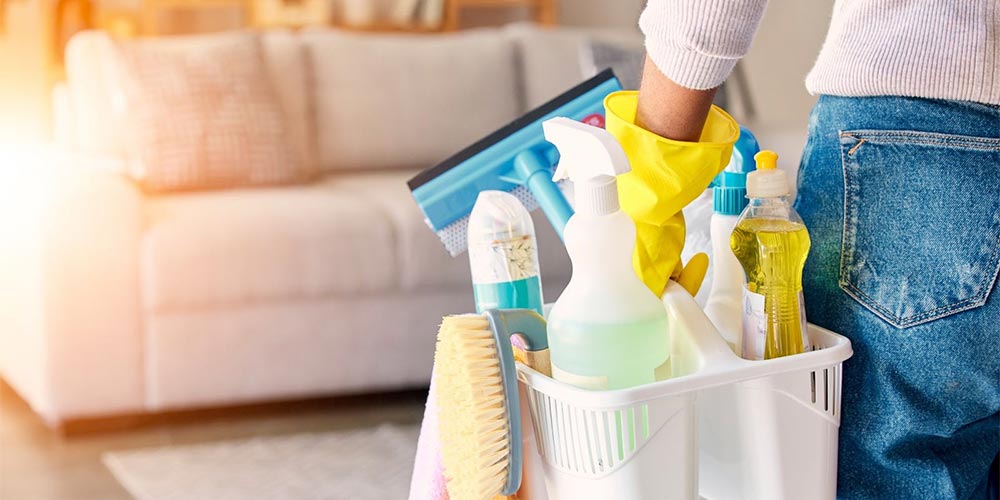
As we approach the new season, there’s no better time than pre-spring to refresh your habits and make sustainable changes that benefit both your home and the planet. Small steps like decluttering, reducing food waste, and embracing reusable alternatives can significantly reduce waste and help you save money along the way.
With this in mind, the experts at London-based rubbish removal company Rainbow Rubbish Removals have shared practical tips to help you effectively reduce waste and adopt more sustainable habits.
1. Declutter Sustainably
Pre-spring is the perfect opportunity to declutter your home and prepare for the season ahead. By donating unwanted items to charity shops or community groups, you can give your belongings a second life and support good causes. Alternatively, hosting a swap party with friends or neighbours is a fun, eco-friendly way to refresh your possessions.
“Swapping items with others not only reduces waste but also builds community connections,” says Miroslav, spokesperson for Rainbow Rubbish Removals.
2. Meal Planning for Leftovers
Food waste is a significant issue, with around 9.5 million tonnes of food discarded annually in the UK. By meal planning and using leftovers creatively, you can reduce waste and save money. For instance, transform last night’s roast vegetables into a delicious soup or freeze extra portions for future meals.
“Leftovers are an untapped resource,” explains Miroslav. “With a bit of planning, you can save hundreds of pounds a year while doing your part for the environment.” A little preparation can go a long way in making your food stretch further and minimising your food bill.
3. Opt for Reusables
Switching to reusable alternatives is one of the simplest ways to cut down on everyday waste. Investing in a durable coffee cup, water bottle, or shopping bags reduces your reliance on single-use items and saves you money in the long run. Reusable beeswax wraps and silicone food covers are also excellent eco-friendly replacements for plastic wrap.
Miroslav notes, “A reusable water bottle alone could save you up to £1,000 a year while drastically reducing plastic waste.”1 Pre-spring is the ideal time to audit your habits and swap out disposable items for reusable ones.
4. Start Composting
Composting turns food scraps and garden waste into a nutrient-rich fertilizer, perfect for preparing your garden for spring planting. Kitchen scraps such as fruit peels, vegetable trimmings, and coffee grounds, when combined with garden waste, decompose into organic material that enriches soil.
“Composting is one of the most rewarding sustainable practices you can adopt,” says Miroslav. It reduces landfill waste, cuts greenhouse gases, and helps you grow a thriving garden. Starting a compost bin now will ensure your soil is ready to nourish your plants as the weather warms up.
5. DIY Cleaning Products
Reducing packaging waste and eliminating harsh chemicals from your home is as simple as making your own cleaning products. Using everyday ingredients like vinegar, baking soda, and essential oils, you can create effective, eco-friendly solutions for scrubbing surfaces, cleaning windows, and freshening up your space.
Spring cleaning doesn’t have to involve waste. By preparing your DIY cleaning supplies during your pre-spring declutter, you’ll save money and reduce reliance on single-use plastics.
6. Shop Secondhand
Shopping secondhand not only saves you money but also reduces the demand for new products and the waste associated with manufacturing and disposal. Visit thrift stores or online marketplaces to find clothes, furniture, and electronics at a fraction of the cost of buying new.
Pre-spring is the ideal time to refresh your wardrobe or home. “Shopping second hand allows you to give items a second life while saving between £30 and £50 on your seasonal wardrobe,”2 says Miroslav. Repairing or upcycling what you already own is another great way to extend the lifespan of your belongings.
[1] You can save over $1,300 a year just by switching to a reusable water bottle — no really, we did the math
[2] Depop reveals how much you can save by shopping secondhand
